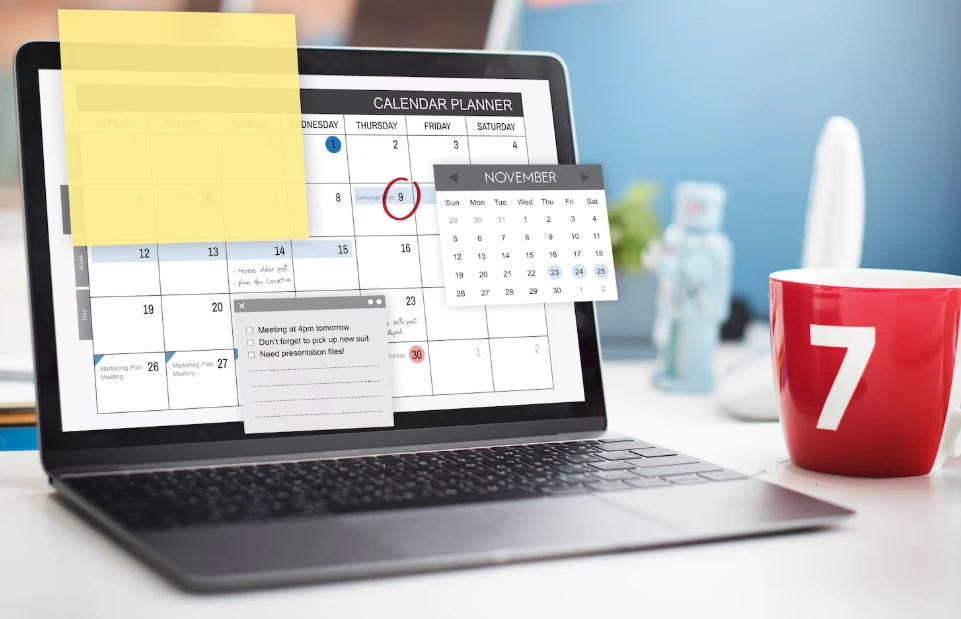
Sales reps lose countless hours every month on scheduling headaches, whether it’s chasing no-shows, handling unqualified meetings, or juggling double bookings. Manual scheduling tools and messy calendars exacerbate the situation by creating friction where speed and clarity should prevail.
A smart appointment booking system fixes that. Done right, it becomes the foundation of a B2B appointment booking strategy, filtering out bad meetings before they ever hit a rep’s calendar, keeping everything organized, and freeing your team to focus on the calls that actually move deals forward.
Core Challenges in Appointment Booking
Even the best sales teams get stuck in scheduling traps that pull them away from what they do best—selling. Let’s break down the most common pain points that slow reps down and drain pipeline momentum.
- Overloaded Reps with Low-Quality Meetings: Reps often walk into calls only to realize the prospect isn’t a decision-maker, doesn’t fit the ICP, or has no intent to buy. Add in the frustration of no-shows, and suddenly, hours of the week vanish without any progress.
- Manual Scheduling Bottlenecks: Nothing kills momentum faster than endless back-and-forth emails trying to lock in a time. Double-bookings and calendar mix-ups creep in, leaving both reps and prospects frustrated.
- Lack of Integration with Sales Tools: When appointment booking lives in its own silo, context gets lost. Notes, lead details, and follow-ups often slip through the cracks if the booking system isn’t integrated with the CRM or sales engagement platform.
The good news is that these challenges can be solved with the right tools and process. Choosing an appointment booking solution for sales teams ensures meetings are streamlined, properly qualified, and seamlessly integrated into daily workflows.
How to Build a Time-Saving Appointment Booking System: Step-by-Step
Designing an appointment booking system isn’t about throwing tools together—it’s about building a process that works for your sales team and scales as you grow. Here’s a structured approach to get it right from the start.
1. Define the Goal of the System
Determine what your booking system is designed to accomplish. Each stage of the sales cycle demands different qualification criteria and scheduling rules. Defining the goal upfront ensures the system aligns with your overall B2B appointment booking strategy, rather than becoming another administrative burden.
2. Choose the Right Tech Stack
Scheduling platforms like Calendly, Chili Piper, or HubSpot Meetings handle the basics, but the real value comes from CRM integration. Ensure the system integrates seamlessly with your CRM, email, and communication channels, so reps have everything in one place and avoid wasting time switching between tabs.
3. Map the Workflow
Map the full path—from lead generation, to qualification, to appointment booking, and finally follow-up. This clarity helps identify where automation can save time and where human touch is still required, creating a smoother B2B appointment booking strategy that aligns with your funnel.
4. Set Clear Rules for Lead Routing
Define clear rules for assigning meetings to specific individuals, such as by territory, industry, company size, or deal value. Intelligent routing ensures that reps are speaking with the right prospects, and it prevents overlaps where multiple reps chase the same opportunity.
5. Test, Measure, and Refine
Track performance with metrics like show-up rates, meeting-to-deal ratios, and rep hours saved. These insights show what’s working and what needs adjustment. Continuous refinement—whether it’s tweaking qualification questions or adjusting reminder cadence—turns a decent system into a high-performing one that consistently delivers value.
Best Practices for Maximizing Rep Efficiency
A few simple practices can keep reps sharp, protect their calendars, and ensure every booked meeting drives pipeline growth.
- Use an Outsourced SDR Team
Offloading early lead qualification to an outsourced SDR team is often the missing link in a strong B2B appointment booking strategy, ensuring reps spend their time only on high-quality conversations. This creates a cleaner pipeline and keeps account executives focused on revenue-driving work, rather than sifting through raw leads.
- Regularly Audit Appointment Data for Quality
Not all booked meetings are equal. Regular audits of appointment data reveal whether leads are truly qualified, how often no-shows occur, and whether routing rules need adjustment. A consistent review loop keeps the system aligned with business goals.
- Continuously Train Reps
Even the best tools fail without adoption. Ongoing training ensures reps know how to use the booking system, manage reschedules, and log critical information into the CRM. Well-trained reps spend less time fumbling with tools and more time closing deals.
Conclusion
A successful B2B appointment booking strategy should filter, automate, and integrate so that only the most relevant meetings are presented to representatives. With proper qualification, automated scheduling, CRM integration, and reminder workflows, your team spends less time chasing and more time closing.
